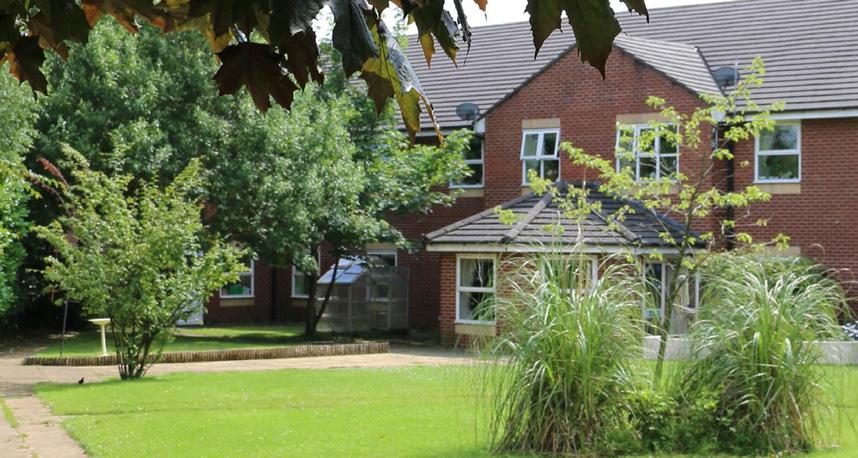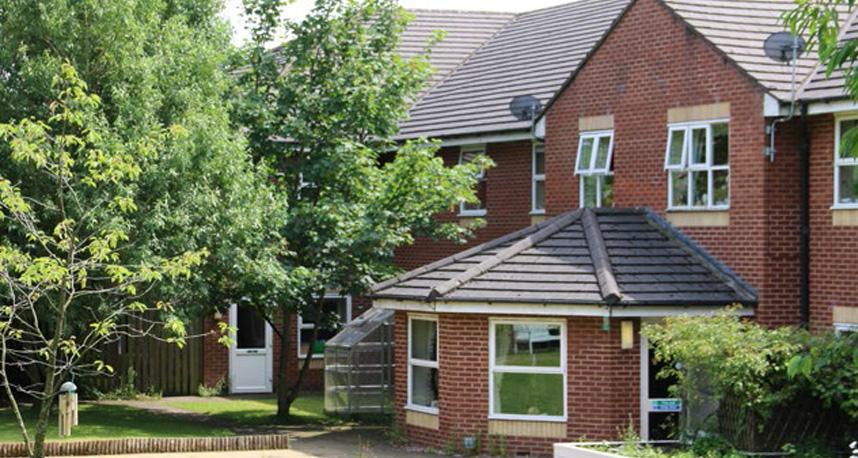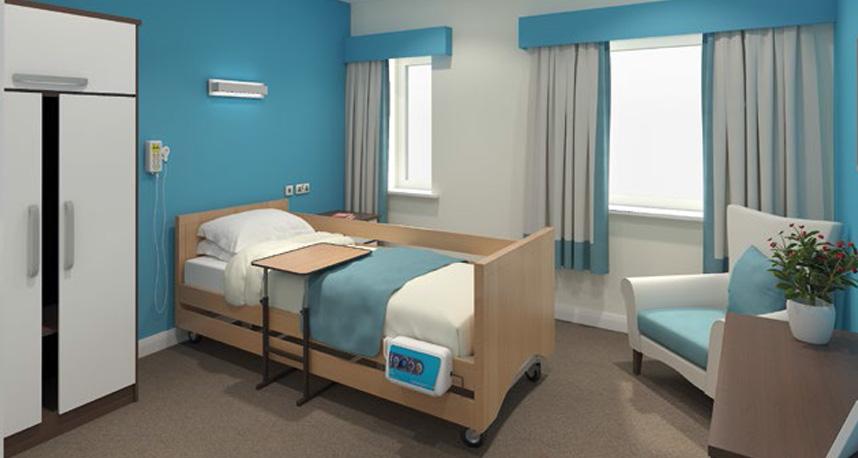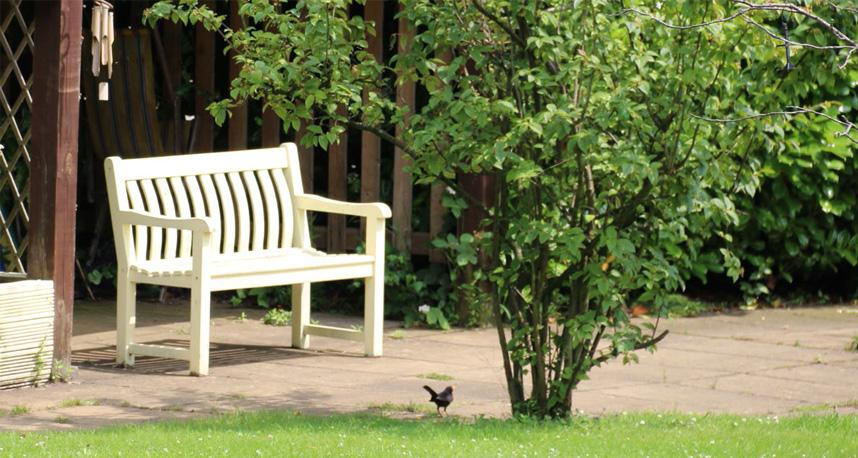sold out
- Overview
- The Care Sector
- Location
- Demand
- Key Facts
- Past Projects
- The Model
- The Purchase Details
- Exit Strategies
- The Process
- After Sales
- The Developers
A substantial, purpose-built care home in Greater Manchester with 91 single en suite bedrooms now operated by Qualia Care.
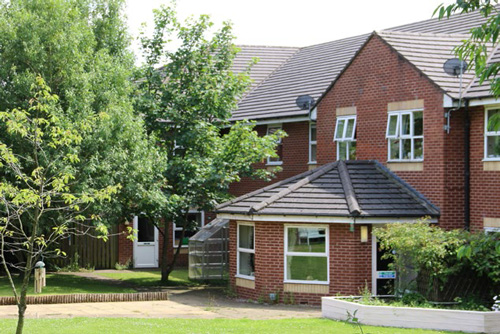
Property Overview
- Purpose-built care home
- Open and operational
- 91 en suite bedrooms
- Within Greater Manchester
- 2 Floors
- Enclosed garden
- Energy Rating B
Accommodation
- Ground Floor 39
- First Floor 52
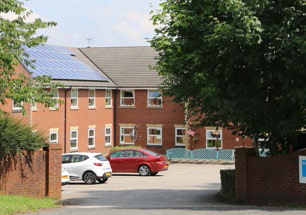
External Details
The care home is made up of four seperate 'houses' and sits on a substantial plot with a large car park to the side and rear, sufficient for 41 cars.
Gardens
The home is surrounded by beautiful, enclosed, secure, landscaped garden areas to the rear and side, with seating areas, raised flowerbeds and a tranquil sensory area.

Operational Status
This attractive facility is currently open and operational. Now operated by Qualia Care, the home will benefit from improved occupancy levels and quality of care, to further enhance its appeal.
Location
The home is located in a pleasant residential area of Heywood, between Rochdale and Bury, Greater Manchester, just south of the picturesque Pennine hills.

Development Plans
The property will benefit from a rolling schedule of refurbishment by Qualia Care Developments. Refurbishments will further enhance the home and will be carried out sensitively to minimise disturbance to residents and staff.
Communal areas
The property currently includes 7 lounges, 4 dining rooms, an activity room, assisted bathrooms, a hair salon, training room and staff room.
With demand at an all-time high for care, Qualia Care Managing Director Phil Whitaker shares the facts, challenges and opportunities present in this rewarding sector.

Social care is never far from the news headlines. With an even greater public profile following the recent snap general election, the challenges of care in the UK and the growing need for quality care are becoming more well known as they come to affect the lives of our families, friends and loved ones.
With social care being such a sensitive and emotive sector, it is more important than ever to deliver quality, affordable care that is designed around a sustainable foundation that can continue to prosper for years to come..
Here at Qualia Care we are passionate about delivering great care and are confident in our long-term outlook. As with any business, a combination of factors, challenges and opportunities influence growth. When considering care, here are some of the hot topics to keep informed on to help better understand this evolving and rewarding sector.
The Facts
An ageing population.
As a country, the UK is ageing. Estimates from the Office for National Statistics (ONS) suggest that 1 in 4 people will be aged 65 plus by 2050, representing a 56% increase from 2012. Eight million people will be aged 80-plus by the same year.
A growing need for care.
The need for UK care is growing. We know that the 1.5million people aged 85 and over in the UK is projected to more than double to 3.4million in the next 23 years Office for National Statistics 2015) and that the demand for services will exceed capacity.
The need for dementia care.
There are over 850,000 people living with a dementia in the UK today and this figure is expected to increase to over 1.1million by 2025. This is more than the population of Birmingham, the UK's 2nd largest city. This figure is also anticipated to grow to over 2 million people by 2051 (Alzheimer's Society).
Opportunities
A new space within the sector.
At a time when the sector is experiencing a shortfall of quality homes, with many larger, national providers focusing their services in the South of England, there is a new 'space' appearing within social care for, specialist providers in the North of England.
It is this new space, the increasing need for dementia care and the local authority demand for quality facilities that we are committed to servicing with our developments.
Challenges
A provider's funding model.
As we have seen over the years even some of the largest providers of care have faltered, resulting in undesirable outcomes and shortage of supply.
We believe new innovative models of funding are essential to securing the commercial viability and stability of care in the long term. That's why we adopt a pragmatic approach to ensure a secure, sustainable future delivering care.
The National Living Wage.
Social care is a labour-intensive business. The National Living Wage is forecast to be �9-per-hour by 2020, a challenge for all providers.
We see fees increasing in line with the NLW, and we're actively forecasting for these changes, engaging with commissioners about the best way forward.
Quality trained nurses.
The recruitment of trained nurses continues to be an issue for health and care providers.
We believe lots of tasks done by nurses can be done by well-trained carers, and we're discussing this subject with commissioners.
Bed Blocking.
It's widely recognised by health and social care providers that it's much easier for older people to be admitted into hospital than it is for them to be discharged. The issue of 'bed-blocking' is a problem that many of us witnessed this past winter (2016). We actively dislike the phrase bed-blocker as it suggests old people are the problem, when it has more to do with how the current system operates.
We believe that when it comes to caring for older people, social care is a far more appropriate and effective use of funds. Money used on providing social care for older people is three-to-four times more effective than money spent caring for the same people in hospital.
How the industry is regulated.
The health and social care sector is a highly-regulated industry, and rightly so. The Care Quality Commission (CQC) is the independent regulator responsible for monitoring, inspecting and regulating health and social care services in England.
All care providers in England are inspected by the CQC. The findings are published on both the CQC and operator's website, allowing the quality of care offered by each provider to be reviewed on a homeby-home basis.
As a legally registered provider of care services in England, all of our care homes operate in line with these regulatory guidelines and requirements. We proactively invest in our people, environments, policies and procedures to continually improve our services, exceed expectations and meet our own high standards of care.

We continue to ensure all our services are safe, caring, responsive, effective and well-led, and work across all our homes to make a positive and tangible difference to people's lives.
We hope this gives you a brief insight into the care sector.
Should you have any questions we invite you to get in touch.
Kind regards.

Phil Whitaker
Managing Director,
Qualia Care
A vibrant area of historical and modern day significance at the centre of growth and culture in the north of England.

The metropolitan county of Greater Manchester is one of the UK's largest, most well-known and fascinating areas.
Located in the North West of England, Greater Manchester is an area of rich history and great contrasts, from cosmopolitan Manchester city centre and bustling market towns to leafy affluent suburbs and beautiful countryside.
Created in 1974, it encompasses ten metropolitan boroughs: Bolton, Bury, Oldham, Rochdale, Stockport, Tameside, Trafford, Wigan, plus the cities of Manchester and Salford. With a population of 530,0001, Manchester is the largest of the boroughs, and is very much the area's financial, cultural and business heart.
Greater Manchester has a highly diversified economy and is a centre for cultural industries, retail, transport, logistics, financial, legal and manufacturing sectors.
In the last decade, Greater Manchester has been perceived as the epicentre of the new 'Northern Powerhouse' � an initiative by former Chancellor George Osborne aimed at boosting the economy of northern England by investing in skills, innovation, transport and culture. Northern Powerhouse is bringing �13billion of investment in transport infrastructure and �3.4billion in growth deals across the North of England.
An example of Greater Manchester's growing national influence was illustrated in 2011 when the BBC moved most of its operations up to the impressive new MediaCityUK at Salford Quays. This prestigious move marked a �1billion commitment to the area, and boosted the local annual economy by �277million2.
"With a population of 2.8million, the metropolitan county of Greater Manchester is the United Kingdom's second-most populous urban area."

Transport.
With Manchester Airport, the 3rd busiest in the UK, an extensive road infrastructure, a well-served rail network, and Metrolink trams, Manchester is well connected.

Community.
With its cosmopolitan population and a diverse range of vibrant communities, people from across the UK, Europe, Asia and America call Greater Manchester home.

Sport.
Manchester United is still arguably the world's largest and most famous football club, inspiring fans across the globe to visit Old Trafford, with its capacity of over 76,500.

Culture.
Internationally renowned for its vibrant arts and music scene. The likes of New Order, The Smiths, The Stone Roses, and Oasis all have roots in Manchester.

History.
Greater Manchester is often referred to as the 'birthplace of the Industrial Revolution'. This legacy can be seen in the mills, bridges and canals that still stand today.

Business .
A highly diversified economy, many large companies have a major UK base in Greater Manchester, including Siemens, Kellogg's UK, Adidas and Umbro.
The Need for Care in Greater Manchester

As with the rest of the UK, Greater Manchester is facing a growing need for social care due to an increasingly elderly population and rising levels of people living with dementia.
A seventh of Greater Manchester's population – around 400,000 residents – are aged 65-plus, a figure that is expected to increase by around 20% by 2021 (32% for those aged 85-plus).
There are around 90,000 people in the North West of England currently living with dementia, with more than 29,500 of those in Greater Manchester.2More than 3,000 people have been diagnosed with dementia in the past year in Greater Manchester.
A recent report suggests that Greater Manchester will witness an 85% increase in the number of people diagnosed with some form of dementia by 2036.
The rise in over-65s and cases of dementia has put greater pressure on local health and social services and generated additional demand for new, sustainable high-quality care facilities staffed by dedicated teams of care professionals.
This need for quality care is emphasized by the charity Independent Age. In a report based on inspections by the Care Quality Commission, it found that more than half the care homes in parts of Greater Manchester, including Stockport, Salford, Tameside and Manchester were rated 'Inadequate' or 'Requires improvement'.
"Greater Manchester is facing a growing need for social care due to an increasingly elderly population and rising levels of people living with dementia."
Key Greater Manchester Factsed

NOW.
400,000+
people aged 65+ in
Greater Manchester
29,500
people living
with dementia
3,000+
people diagnosed with
dementia last year
1/2
of care homes in parts of
Greater Manchester were
rated 'Inadequate' or
'Requires improvement'
FUTURE PREDICTIONS.
32%
increase of people
aged 85+ by 2021
14%
of people will be
aged 75+ by 20364
20%
increase of people
aged 65+ by 20211
85%
increase in the number
of people with a dementia
by 20364
ACROSS THE UK .
- Current costs of dementia to the UK economy are estimated at £23bn ($29bn; €26bn) annually
- Care for the older population is already generating an income of £14.5billion for the UK economy every year, with demand expected to grow exponentially in coming years
- The UK government has announced an extra £2billion of funding for social care over the next three years
- 1.2 million people are expected to be living with dementia in England and Wales by 2040, up from almost 800,000 today
Each home expertly managed to meet the local need
Gilwood Lodge Nursing Home.
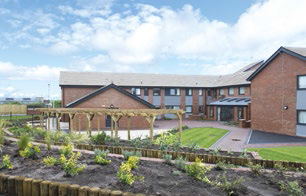
Open & Operational
47-bed care facility in Blackpool's South Shore area, which provides high standards of dementia, end-of-life and palliative care.
Duchess Gardens Care Centre.

Open & Operational
85-bed facility in Bingley, which provides nursing dementia care, young disabled people's care, and nursing and residential care.
Sandycroft Nursing Home.
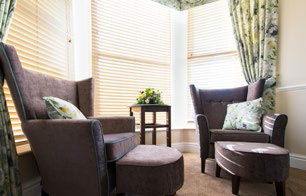
Open & Operational
26-bed facility in Blackpool, which provides nursing, palliative and end-of-life care.
Washington Lodge Nursing Home.
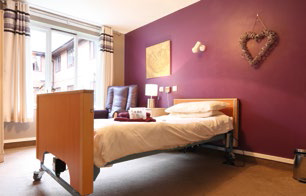
Open & Operational
64-bed facility in Washington Village, Tyne and Wear which provides quality nursing, residential and dementia-specific care.
St Mary's Nursing Home.

Open & Operational
74-bed facility in Greater Manchester which provides nursing care, nursing dementia care, as well as palliative care, day care and respite care.
Birchley Hall Care Home.

Open & Operational
31-bed facility in Wigan, which provides residential and dementia care.
Downshaw Lodge Care Home.
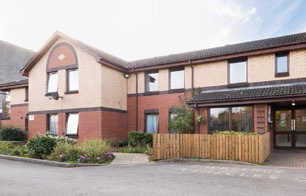
Open & Operational
45-bed facility in Greater Manchester, which provides nursing and dementia care for males with challenging behaviour.
Clarence Grove.
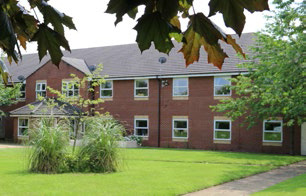
Open & Operational
91-bed facility in Greater Manchester, which provides nursing, palliative, residential, respite and young physically disabled care.
Oakesway Care Home.
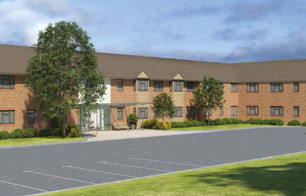
Closed for Refurbishment
46-Bed facility in Hartlepool, North East England, currently closed for refurbishment, which will provide dementia and palliative care.
Hillside Care Home.
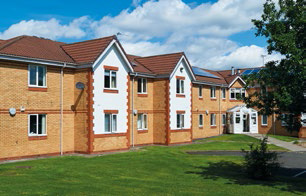
Open & Operational
114-bed facility in Liverpool, which provides nursing, dementia, and young people's disabled care.
Florence Hall.
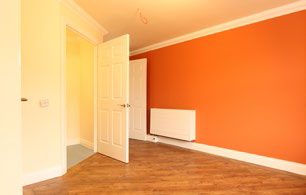
Closed for Refurbishment
52-bed facility in South Shields, currently closed for refurbishment, which will provide nursing and dementia care.
The structure that secures your purchase

The Qualia Model
Based in the North of England, Qualia Care was established in March 2016 to deliver the bestpossible individualised care and support in safe, attractive and highly-adapted environments for people living with a dementia or related condition, as well as those with personal care requirements, end-of-life or specialist palliative care needs.
Qualia achieves this through a sound, sustainable combined business and care model that balances the needs of both residents and investment partners, delivering quality care and a respectable return on investment (ROI).
Why it works for residents
Quality care is at the heart of Qualia. The Qualia Model enables the provision of revitalised care facilities that benefit residents, their families and the local community in both the short and long term.
Most care operators who use traditional bank funding feel the immediate pressure of interest payments after acquisition, which can sometimes be linked to external factors such as the Consumer Price Index (CPI) and not necessarily fall in line with local authority rates.
With the Qualia Model, the amount paid in rent is directly determined by today's local authority rates (which comprises approximately 80% of our residents), not by external factors such as fluctuating interest rates or mortgage payments.
In addition, a 24-month 'rent-free' period provides Qualia Care with valuable breathing space. This enables essential improvements to be made within each facility to increase occupancy, reduce overhead costs, and to implement new, improved care plans and systems that empower staff to provide high-quality care.
The two-year period also gives time for Qualia Care Developments to transform facilities into welcoming, modern homes that provide residents with the kind of facilities normally reserved for private care, but at local authority rates.
The sustainable nature of the Qualia Model means that residents and their families can be confident about the long-term future of a Qualia Care home.
As a registered care provider, each Qualia Care facility is regularly inspected by the Care Quality Commission (CQC) who monitor, inspect and regulate health and social care services and publish the results.
Why it works for purchasers
By removing bank lending and debt from its operations, Qualia has created a model that provides a mutually beneficial situation for commercial property purchasers, who can acquire a sound investment that makes both a positive, much-needed contribution to people's lives and delivers a respectable return on investment (ROI)*.
By purchasing a 125-yearlong leasehold unit within an operational Qualia Care facility, you will benefit from a full UK title registered with UK Land Registry from completion, a process which is handled by your legal representative.
The annual rental a purchaser receives by subleasing their room(s) back to Qualia Care Developments Limited provides a strong, sustainable ROI, and offers a strong alternative to traditional residential buy-to-let, which is becoming less attractive due to new stamp duty rules and plans to phase out all tax relief on mortgage interest.
Qualia's streamlined administrative and accounting structure means property buyers benefit from operational efficiencies and professional support throughout the purchase and aftersales process.
A new commercial buy-to-let property purchase
Investment highlights
- 8% Rental income
- ROI up to 225%
- 125-year-long leasehold
- 4 Exit strategies
- Buy back up to 125%
- Fully managed asset

| Purchase price | £75,000 |
| Reservation fee | £500 |
| Balance of cash deposit | £74,500 |
| Assured tenancy period | 25 years |
| Rental income (circa) | 8% |
| Rental income per annum | £6,000 |
"A fully managed, income generating asset that delivers both a respectable return and has a direct, positive impact on the lives of those in need of quality, affordable care."
| Year | Rental income schedule (circa 8%) |
| 1 - 25 | £6,000 per annum |
| Total | £150,000 |
Purchasing a unit within Clarence Grove offers you circa 8% rental income per annum through a 25-year sublease, with buy-back options from year 10 and a return on investment of up to 225% depending on your chosen exit strategy.
Your rental income is paid annually in arrears from date of exchange.
Your choice of four exits
YEAR
10
Buy-back / Value
Total rental Income
Total purchaser returns
Cash received above initial cash input
ROI
115% / £86,250
£60,000
£146,250
£71,250
95%
YEAR
15
Buy-back / Value
Total rental Income
Total purchaser returns
Cash received above initial cash input
ROI
120% / £90,000
£90,000
£180,000
£105,000
140%
YEAR
20
Buy-back / Value
Total rental Income
Total purchaser returns
Cash received above initial cash input
ROI
125% / £93,750
£120,000
£213,750
£138,750
185%
YEAR
25
Buy-back / Value
Total rental Income
Total purchaser returns
Cash received above initial cash input
ROI
125% / £93,750
£150,000
£243,750
£168,750
225%
A choice of 4 assured exit strategies provides you ultimate flexibility, rewarding long-term commitment with greater returns, whilst maintaining a strong, sustainable operation.
Developer Call Option - Should the developer initiate the freehold sale of the facility to an external operator
at any point, you will receive up to 125% of the purchase price, dependent on when this is initiated.
Alternatively, you have the option to sell your unit on the open market at any given point.
Contact your sales consultant today
to check the latest availability and
secure your unit.
A Simple Three-Step Process
Prior to your purchase, your consultant will listen to your needs and assist you in determining if Clarence Grove is the right opportunity for you. When you feel ready to proceed, you'll be guided through a clear three-step purchase process.
1
Your sales consultant will answer your questions and guide you through every aspect of this buyto- let opportunity, ecommending a unit for consideration.
On acceptance, you will receive a reservation form, and you will be asked to make the £500 payment required to reserve your unit.
Within 7 days, you are required to provide your certified identification documents along with source/proof of funds for the unit to be secured and assigned to you.
2
The contracts will be issued to your legal representative for review. You and your signatory witness then sign the contract and return it to your legal representative using a secure, signed-for delivery service.
At this point, you will also pay the outstanding balance of purchase monies into your legal representative's client account.
3
Upon receipt of your documents and balance of purchase monies, exchange and completion can take place. Your legal representative will then attend to all registration formalities with the Land Registry.
Omitting delays, the purchase process is scheduled to take no longer than 28 days from the point of reservation.
As part of your purchase you will receive ongoing support from Qualia's dedicated Aftersales Team.
The Aftersales Team is responsible for building existing client relationships and assisting with enquires. All clients who choose to invest in one of our care homes benefit from our Aftersales service, which includes:

Aftersales Team contact
Upon completion, our team will contact you congratulating you on your purchase. The team is always on hand to assist should you have any questions.
Quarterly Updates
At the end of each quarter, you will receive a quarterly update which provides information on the status of your project as well as topical and interesting news articles.
Weekly Email News
A weekly news roundup from Qualia covering featured articles from Qualia and from across the UK care industry, delivered to your inbox.
A Welcome Letter
Issued upon completion, this letter provides information on Land Registry and guidance if you are a non-UK resident.
A Welcome Pack
Your Welcome Pack provides you with all the key information regarding your purchase, including rental payment dates and project information. It also includes relevant forms, including a bank mandate that enables us to process your rental payments and allows you to update your information should your details change.
An Annual Statement
An end of year financial report which details the financial income from your purchase and any deferment payments.
"Your decision to purchase a unit at a Qualia Care facility is the start of a long-term, ongoing relationship. You will be regularly kept up-to-date with your purchase by our Aftersales team."
Providing care across the north of England
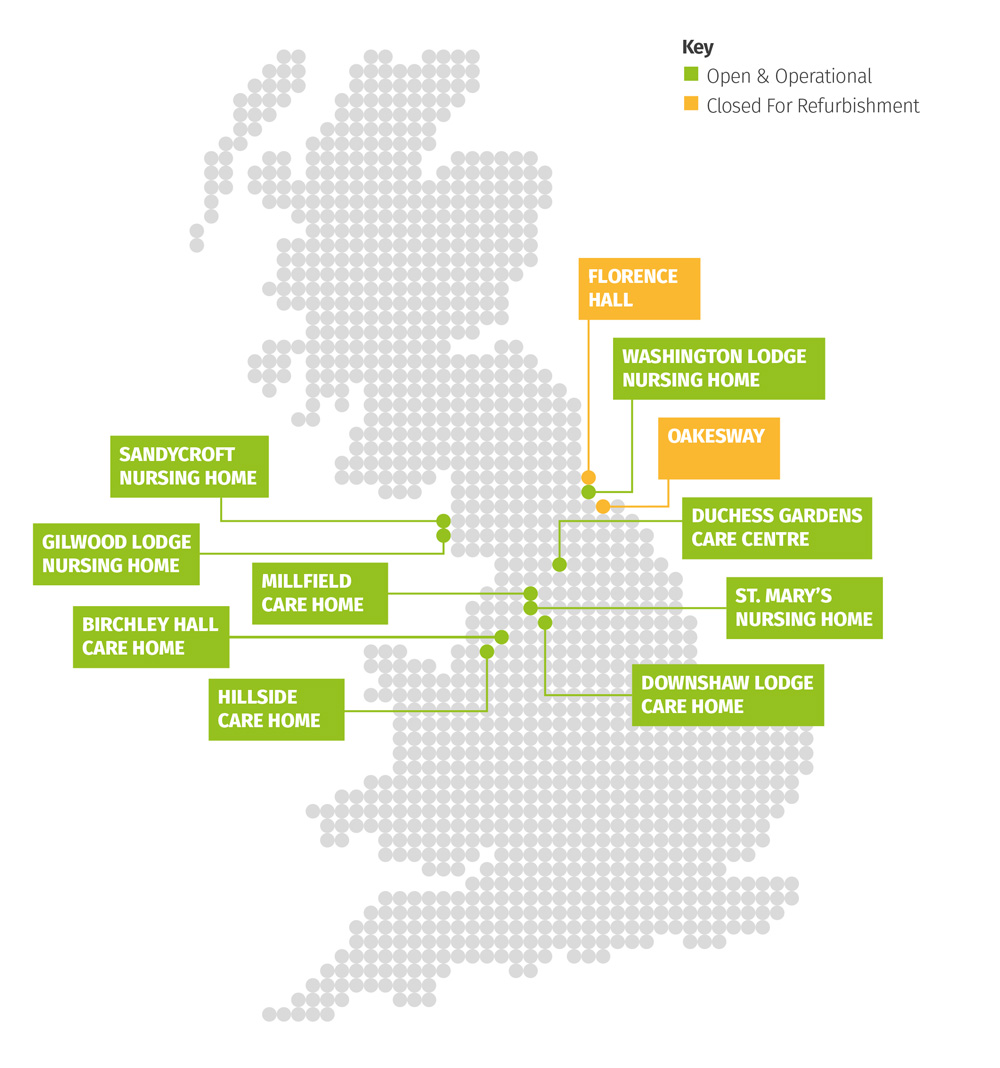
11
Homes in
Portfolio
9
Operational
Homes
2
Homes to be
Registered
675
675 Beds in
Portfolio
577
Beds
Registered
98
Beds to be
Registered



